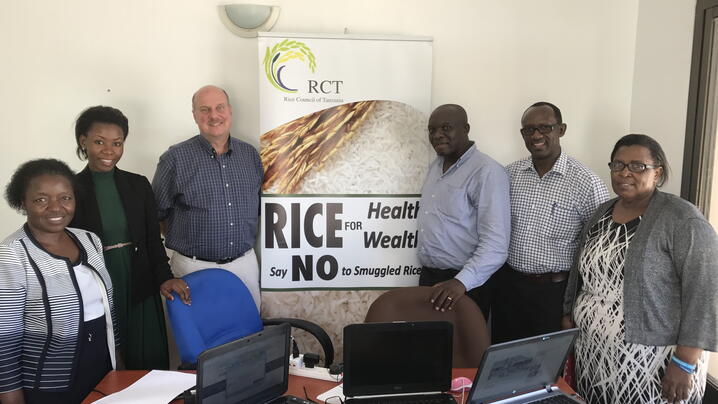
Key Project Information
Funder
Period of Performance
Location
TanzaniaICMA's Role
Project Details
ICMA is an implementing partner in the Enabling Growth Through Investment and Enterprise (ENGINE) Program in Tanzania, a project designed to increase private-sector investment leading to inclusive, broad-based economic growth in the agricultural regions of Mbeya, Morogoro, and Iringa, as well as in Zanzibar.
ENGINE is a four-year Feed the Future activity funded by the U.S. Agency for International Development (USAID) and awarded through the Volunteers for Economic Growth Alliance (VEGA), with the International Executive Service Corps (IESC) taking the lead.
Components of the Project
The project has three component objectives:
- Implementing Policies for Growth: Build the capacity of the private sector to work effectively with the government to set the policy agenda and improve the capacity of the public sector to implement policies that promote an environment that enables business. An indicator of success is a 20 percent increase in formally registered businesses in targeted local government authorities (LGAs).
- Equipping for Growth: Foster the growth and capacity of a sustainable market for business development services in Tanzania, with the result that at least 24 suppliers of these services are sustainable by the end of the project.
- Financing for Growth: Broaden access to financing for small and medium-sized enterprises, specifically for women and youth entrepreneurs, to facilitate increased investment and growth, with the result that more than $7 million of Development Credit Authority loans are extended to women- and youth-owned businesses.
ICMA’s Role
ICMA’s role is to advance the first objective, implementing policies for growth, by guiding and managing a local governance analyst and fielding local, regional, and international volunteers. ICMA’s specific tasks are to:
- Recruit and Manage Volunteers. ICMA’s approach is to motivate a cadre of executive-level volunteers with specific and relevant experience and skill sets in national and local policy development. The local government advisor and volunteers work with a local consulting firm to ensure sustainability of results.
- Employ Learning-by-Doing Capacity Strengthening. Volunteers in each of the regional capitals support local efforts with mentoring and coaching, training, and direct technical assistance to build local capacity. Some possible outcomes include streamlined business registration and licensing, improved “own-source” revenue from the LGAs, services on quality standards, market access and information, and other business support services.
- Improve Policy Analysis, Design, Advocacy, Adoption, and Monitoring. ICMA is deploying experts in economic governance and ICMA volunteers from the political and administrative leadership of U.S. cities for short- and medium-term assignments to work with the LGAs, the business council working group, and private-sector and civil society organizations to better articulate evidence-based messaging and adopt effective advocacy methods.
For more information, see About Global Programs on our website, or contact global@icma.org.
New, Reduced Membership Dues
A new, reduced dues rate is available for CAOs/ACAOs, along with additional discounts for those in smaller communities, has been implemented. Learn more and be sure to join or renew today!
